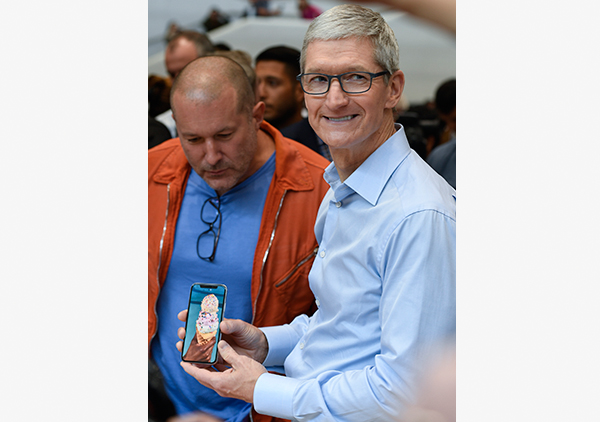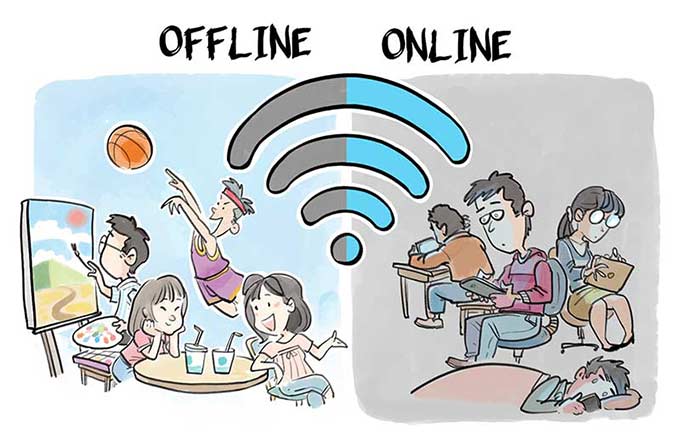Domestic rivals make most of falling Apple
 |
|
Apple Inc CEO Tim Cook introduces the iPhone X at its release in Cupertino, California. [Qi Heng/for China Daily] |
Tim Cook, the chief executive officer of Apple Inc, launched three new products-iPhone8, iPhone8 Plus and iPhoneX-on Tuesday but, unlike in the past, the Chinese market's response at best was lukewarm.
Today Apple ranks fifth in the Chinese smartphone market. Worse, in the second quarter of this year, only 8 million iPhones were sold on the Chinese mainland, dragging its market share from 9.2 percent in the first quarter down to 7.1 percent. And among the top five best-selling smartphones, iPhone is the only one to see its market share drop.
According to an online survey, about 37 percent of the iPhone users and 49 percent users of other brands said they would not buy any of the three new products after watching their launch. Established brands such as iPhones have lost their shine because "innovative" new products no longer catch the fancy of many youths.
South Korea-based Samsung faces an even bigger challenge. The launch of its new product on the same day attracted so little attention from Chinese consumers that there were hardly any reports about the event on Chinese websites.
Among other things, perhaps Apple's attitude toward Chinese users and companies is responsible for its decline in the Chinese market. It has always had a big appetite for profit, even trying to make money from the apps loaded on the iPhones. For instance, in April, Apple asked Tencent, the owner of WeChat, to pay 30 percent of all the bonus money as a kind of "tax". That Apple has fallen behind in the fierce competition for iPhones' outer designs, performances and prices has also contributed to its decline.
From iPhone4 in 2010 to iPhone8 this year, Apple has stuck to the same design pattern. In particular, iPhone8 looks almost the same as iPhone7, prompting many to say that iPhone8 users should keep their "new buy" upside down on the table so that those around can see the glass back and realize it is the new model.
The decline of big global brands has seen a corresponding rise in the fortunes of Chinese smartphone companies, which have upgraded their models several times in the past years.
MI, a domestic smartphone company, was founded in April 2010, but its share in the Chinese market in the second quarter was 11.8 percent, higher than that of iPhones.
Besides, both MI and Huawei have entered the US market and are competing with Apple in its homeland and Europe. Inspired by the strategy of "Made in China 2025", the Chinese cellphone companies are catching up fast by investing huge amounts of money in research and development. For instance, thanks to its robust R&D investment, Huawei topped the innovation list last year with 4,906 patents.
In other words, the changing cellphone market reflects the increasing potential of Chinese mobile phone producers.
The author is a writer with China Daily. zhangzhouxiang@chinadaily.com.cn
























